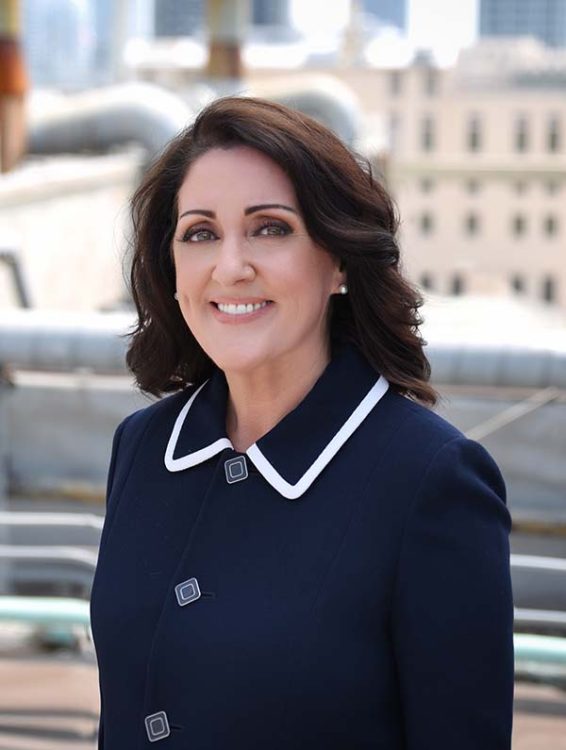 Life has changed. Concerns that seemed monumental a few short months ago have faded in the face of worries we never saw coming. We are in the eye of the COVID storm, pummeled from every direction. Swirling around us are apprehensions about our safety, our finances and our kids’ education. Too much of it can seem beyond our control. So we focus on the things we can control, the little actions we can take to protect ourselves and those we love: we wash our hands, avoid crowds, observe social distancing recommendations and wear our masks.Well, at least most of us do.It’s a question that mystifies many: what keeps people from taking this simple step to curb the spread of a pandemic that kills thousands of people every single day? The science is clear on the need for face coverings and the consequences of going unmasked have found a permanent place in the daily news reports.It’s easy to think of those who shirk this responsibility—and I do believe it is a responsibility that we all share—as selfish, lazy or stubborn.But what is it really? What causes people to ignore a moral mandate as critical as this one, putting everyone with whom they come in contact—family, friends, passersby—at risk of contracting a deadly disease?
Life has changed. Concerns that seemed monumental a few short months ago have faded in the face of worries we never saw coming. We are in the eye of the COVID storm, pummeled from every direction. Swirling around us are apprehensions about our safety, our finances and our kids’ education. Too much of it can seem beyond our control. So we focus on the things we can control, the little actions we can take to protect ourselves and those we love: we wash our hands, avoid crowds, observe social distancing recommendations and wear our masks.Well, at least most of us do.It’s a question that mystifies many: what keeps people from taking this simple step to curb the spread of a pandemic that kills thousands of people every single day? The science is clear on the need for face coverings and the consequences of going unmasked have found a permanent place in the daily news reports.It’s easy to think of those who shirk this responsibility—and I do believe it is a responsibility that we all share—as selfish, lazy or stubborn.But what is it really? What causes people to ignore a moral mandate as critical as this one, putting everyone with whom they come in contact—family, friends, passersby—at risk of contracting a deadly disease?
We are a country that prides itself on individualism and independence—on doing what we want to do and doing it our way. It is this spirit that has spawned the entrepreneurial culture that has made us great. But the exercise of personal choice is a privilege—a privilege that assumes others are not harmed by the decisions you make. In the case of the coronavirus, refusing to wear a mask risks the lives of others.
While personal freedom may top the list of reasons to shun masks, these claims have become hopelessly entangled in other factors that feed into this phenomenon: skepticism about the authenticity or severity of the virus, and a distrust of the scientific explanations and predictions we are hearing from experts. What is happening, however, is less about science than it is about an overarching breakdown in trust and civility that is ravaging our society. The polarization that has infiltrated our political discourse in recent years has taken its toll on reason and mutual respect. It doesn’t help that our leaders are not speaking in a single voice, that we are put in the position of siding with one elected official over another. Sometimes it just comes down to red versus blue—not an effective way to fight a colorblind virus
And then there is the anxiety and fear that runs through our daily lives and disrupts our plans, our patterns and sense of control. The fight or flight response kicks in and for some it’s easier to flee the danger than to face up to it. Refusing to wear a mask is paradoxically part of avoiding the fear of the pandemic.
Much needs to change if we are to pound this insidious virus into submission. For starters, we need to find the balance between individual liberty and social responsibility. Yes, it’s a free country, but exercising our rights cannot come at the expense of others. Each of us needs to step beyond what is our individual right and extend ourselves to the care of others.
There also needs to be partnering at the top. Leaders need to work together to develop a consistent message and a shared strategy. They need to make certain that the “whats” are supported by the “whys.” As adults , we don’t like to be told what to do without a clear understanding of why our actions are important.
We need to rethink the issue of control. Yes, we are demonstrating our control by not wearing a mask, but we’re also taking control by wearing one. Which type of control will keep us all alive?
We’ve all come together at difficult times in our nation’s history—during World War II and after 9/11. Then, as now, so much was at stake that we knew that together we could be stronger. This pandemic has brought with it new challenges. We have to remember that we’re all in this together, that every single one of us has a role to play, and that we won’t get out of it unless we come together. I hope we can get it right before it’s too late.





